About
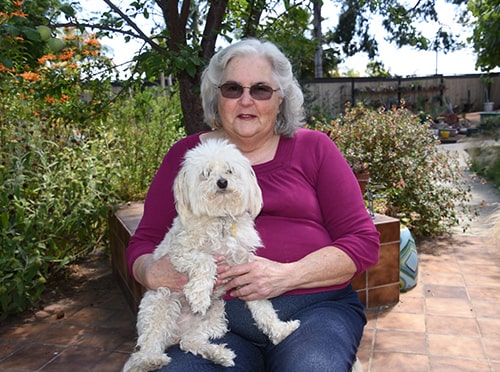
Caroline McCullagh’s road to penning her own novels was not direct. Like many women of her generation, she left college to marry and spent years as a wife and mother before returning to school in the late ‘80s. And even then, it was not writing that engaged her. Her ongoing interest in the Inuit and Eskimos of the far north was the genesis of her return to college, and she earned bachelor’s and master’s degrees in cultural anthropology. She also did the required classwork for a PhD, but chose not to go further with her studies.
When the writing bug began to hit, helping others with their writing came first. In 1998, she edited a cookbook, Sing for Your Supper, for San Diego Opera, and later participated in writing and performing in a short opera, The Singing Mirror. She has edited many books and short stories for friends, including her writing partner, Dr. Richard Lederer.
Her other published books, co-written with Richard, include American Trivia and American Trivia Quiz Book. A daily newspaper column, based on those two books, ran for four years in the San Diego Union Tribune.
She edits Richard’s other books as well as books for friends, although she doesn’t edit professionally because of time constraints. Before Covid, she taught writing with one class and one private student a week. She looks forward to getting back to that someday.
She has written monthly book reviews for over twenty years, first for the San Diego Horticultural Society’s Let’s Talk Plants and now for American Mensa’s national magazine, Mensa Bulletin. She has also taught creative writing for many years in a program of continuing education for seniors.
Caroline started writing fiction in her 60s. In writing the Anne O’Malley novels, she found her voice. Like Caroline, Anne is a woman of a certain age, and like her, Anne is widowed. Caroline is often asked if Anne’s story is autobiographical. It’s not. Anne’s life has its own direction.
But Anne is the woman Caroline wishes she were. Anne says yes to life and faces whatever comes with courage. When she seeks answers to a family mystery she had been researching with her late husband, she finds adventure beyond her wildest imaginings and a love that is totally unanticipated. Most importantly, though, she learns that when we allow for it, the adventure in life continues at any age.
In addition to her writing, Caroline is a dedicated gardener and a sometime quilter and is active in Mensa and Phi Beta Kappa. She loves to spend time with her daughter and grandchildren, lunch with friends, play in her garden, listen to music—mostly opera and jazz, read mysteries, and rework some of the recipes she will share with you in her blog. In her free time, Caroline thinks about writing, as she plans Anne’s next adventure.
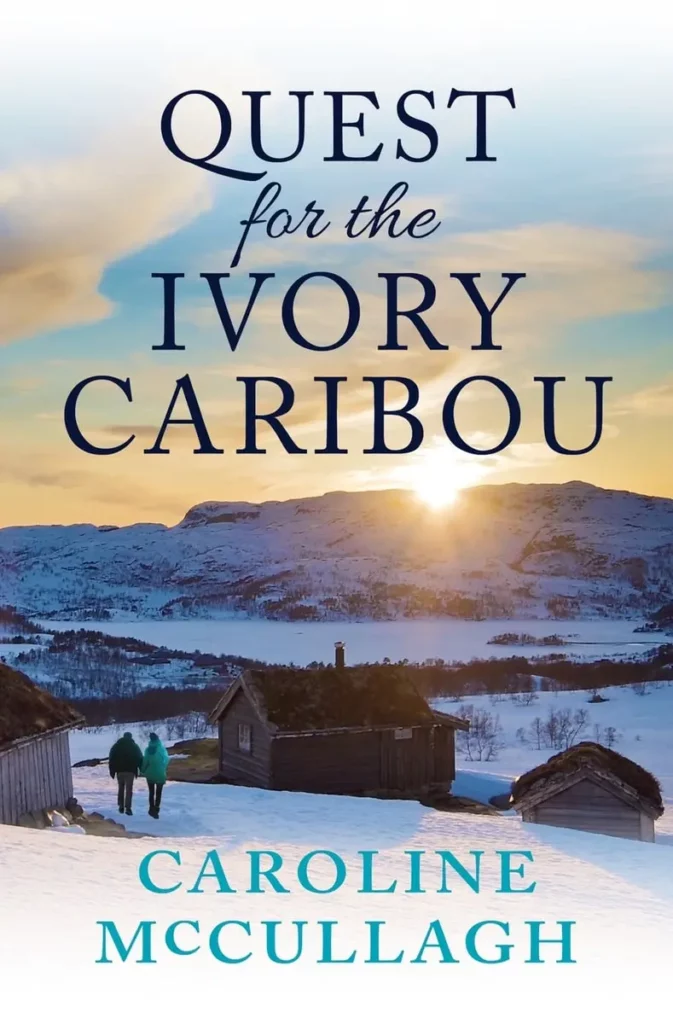
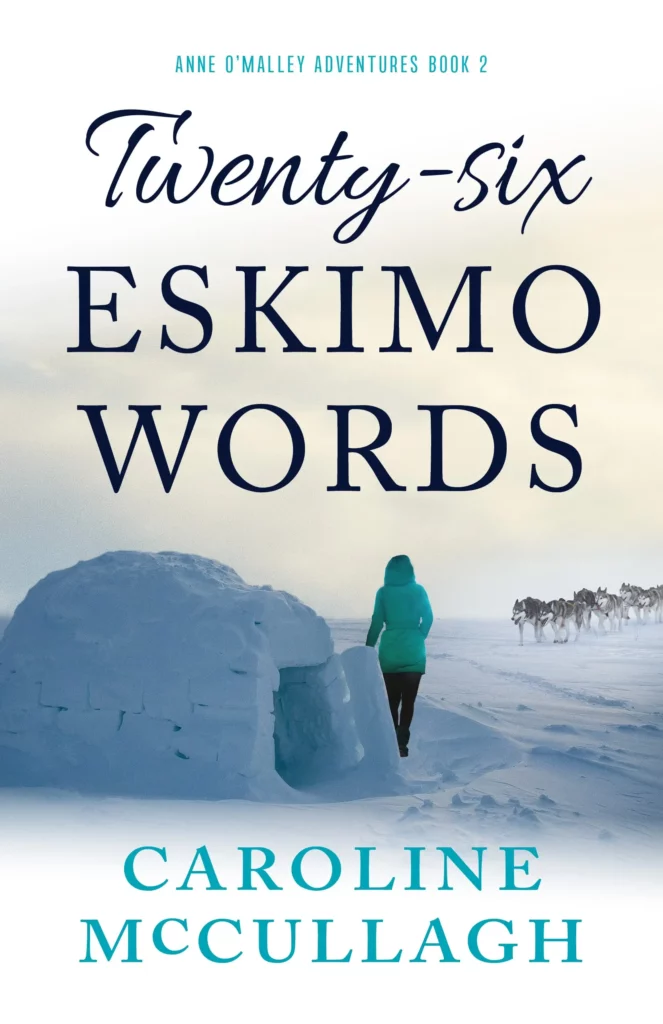
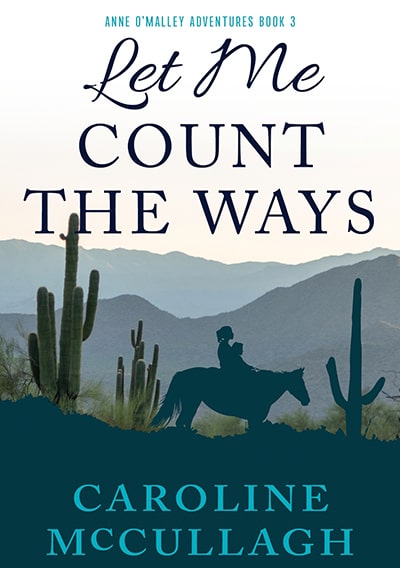
Author Q&A
What inspired you to write Quest for the Ivory Caribou?
In 2005, I had shoulder replacement surgery. I lost the use of my right arm for a number of months until it healed and I regained my strength. I couldn’t do most of my usual activities, but I could use my left hand to put my right hand on a keyboard. My fingers worked just fine. I’d done a lot of writing over the years, but I’d never written any fiction. I decided to try it. When I did, Anne’s story was right there, waiting to be told.
When did you first get the idea for this series of books, and how long did it take you to write the first one?
I started reading about the Inuit and the Eskimos when I was a teenager. I’ve always been interested in transition characters—people like Jack who have to learn to live in two worlds. I thought these books were going to be about him, but—surprise!—I had no idea what the inner life of an Inuit man was like. I know a lot about older women, however.
I started the actual writing about twelve years ago. The first book took about two years, but you’re never really done with a book until someone takes it out of your hands.
Your main character, Anne, is 60. What is the purpose of her being this age?
I’m a woman “of a certain age.” I was born in 1941. I like to read, but I got tired of reading about 25-year-old women. It was as if life, romance, and love just stop at age 30 or 35. But I know many women my age who are doing interesting things, including falling in love. An older heroine seemed like a natural.
You have lived and breathed Anne through six books now. How would you describe her?
With each book I write, I learn more about Anne. Writing her is like making a friend. Bit by bit, over time, she reveals herself to me. I think the best thing about her is that she’s honorable. That honor forces her to be courageous. But being courageous doesn’t come naturally to her, and she pays a price for it. In addition, she’s passionate. She’s able to feel deeply and commit deeply. She’s far from perfect, though. As you get to know her, she’ll reveal that part of herself to you too.
Often an author’s main character in some way reflects their life experience. How much of Anne is derived from you?
Anne is really the person I wish I were. She finds her courage and she grows, and surprisingly, I think I’ve grown a little bit with her. I find that I often say to myself, “Anne wouldn’t be afraid of that.” I’ve made my mantra “Say yes to life.”
Is Jack a figment of your imagination or a conglomeration of men you know? When writing him, how conscious were you of the qualities with which you wanted to imbue him, and which of those qualities do you find most attractive?
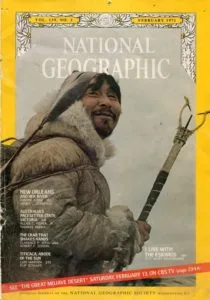
I haven’t met a man like Jack yet, but I live in hope! I didn’t consciously choose to imbue him with qualities. He revealed himself to me as I wrote. Sometimes I would write a section or even a chapter, and when I was finished, Jack would say to me, “No! I would never do that. I would never say that,” and out it went. I had to throw out the entire first chapter of the third book, Let Me Count the Ways, because of that. It’s a strange process. I don’t understand it, but all the characters live in my head and sort of tell me what I should write.
What I most admire Jack for is his courage and his passion for Anne, for his family, for his teaching, and for science. Jack has lived close to nature most of his life. He understands about the realities of life and death. He focuses on the important things.
You seem to deal with several themes in these books. In order of importance, can you enumerate them as you see them?
All six (so far) books about Anne and Jack are about the nature of love and the possibility of forgiveness. Those are the most important themes. And when I say “love,” I don’t just mean just sexual love. I also mean the kind of love Anne has for Carola and Ernesto, the feelings she has for René and Marcia, the yearning she has for family.
I think a second theme has to do with the innate dignity of the Inuit. They were not “lesser people” waiting for us to come along and bring them into the modern world. They had a rich society and culture and still do, but they’ve been through some hard times in order to maintain that. The same is true of many other cultures in the Americas and around the world.
A third theme is the importance of the balance of nature. Jack speaks for me when he talks about what will happen if drilling is allowed on the North Slope. There are some things in life that just cost too much, and you and I will pay for them—probably sooner than later.
When and why did you become interested in Inuit culture?
I have a master’s degree in cultural anthropology. I’ve always been interested in other cultures, especially those of people who live in marginal environments.
My all-time favorite book is Never in Anger, a classic in anthropology, by Jean L. Briggs.
“Have a good winter,” the pilot said as he climbed into his plane. He’d just dropped Briggs off at a frozen inlet in northern Canada where eight Eskimo (now Inuit) families camped. She lived for a year as an adopted daughter in one of the families.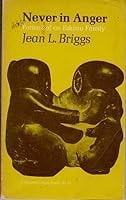
Her 1970 book was life changing for me. You may laugh, but it was the first time I really understood that not all people in the world dreamed of being middle-class Americans. My second important lesson was that it is possible to make a satisfying and even joyful life in the most difficult of circumstances.
Briggs wrote about a man she called Inuttiaq, who was somewhat like Jack. I spent years thinking about what it would be like for someone caught between two cultures, as he was, not really fitting well in either.
How much research do you put into your books? And do you do it yourself, or do you have a research assistant?
I don’t have an assistant. I enjoy research. My late husband and I used to go to second-hand stores to buy old National Geographics that had stories about the north. I have a huge scrapbook that I made from those. I also have a number of books on the Inuit. And I’ve put in many hours on the internet looking for technical details such as how long a sled is, how the Inuit carried water when they traveled, and the significance of the various tattoo designs. I really enjoy that kind of thing, so I can get lost for hours researching.
Tell us a bit about your writing schedule and process.
I’m just a tiny bit compulsive about writing and editing. Some might say I’m addicted. Usually the first thing I do in the morning is work for a couple of hours before I get dressed and eat breakfast. The amount of writing I do the rest of the day is dictated by what other responsibilities I have. And I don’t just work on the Anne and Jack books. Right now, I’m also working on my memoir, editing and fact checking a book for a friend, and working on the monthly book review column I write for a national magazine, the Mensa Bulletin. Before Covid, I also taught creative writing at a senior center. I still trade editing chores with a friend. We meet once a week (sometimes by phone) to go over what we’ve been writing. Unfortunately, this doesn’t leave much time for housework and such like.
You have written book reviews, a memoir, a cookbook, two history books, and six novels. What drives you to write?
When I’m doing it, I’m having fun. When I’m not doing, I thinking about it. Maybe obsession, maybe addiction—whatever, I like it.
What is the best piece of advice you have received as a writer?
Start writing. Everyone can develop as a writer, but not until you have something on paper that you can improve. All writers will tell you that the hardest part of writing is getting your behind in the chair in front of the keyboard.
